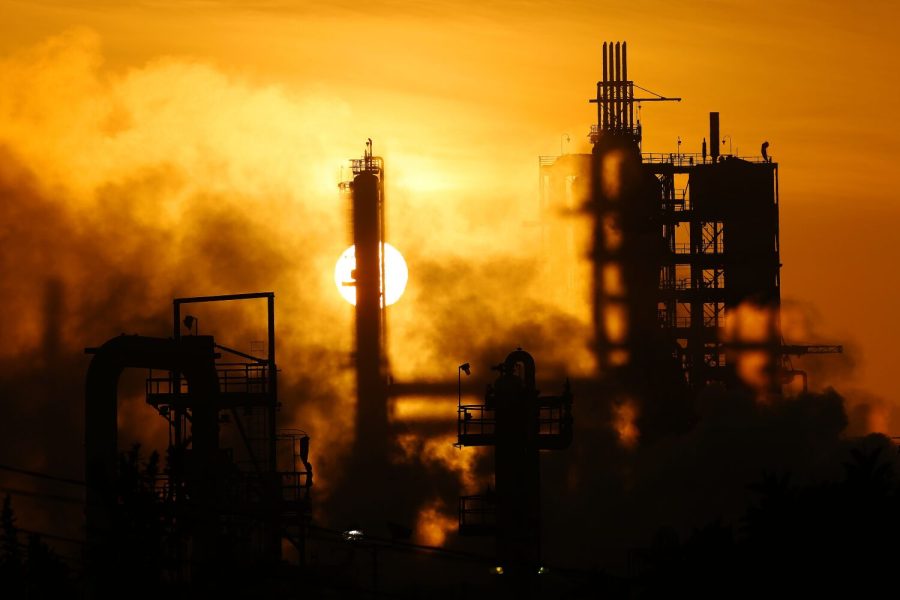Over the past two decades, the conversation about climate change has always centered around what is causing it — is it the result of greenhouse gas emissions, or is it just a natural process beyond human control? Increasingly, most people seem to agree on the former. As this consensus crystallizes, the question is now becoming, “what can we do?” Luckily, the oil companies of the world have an answer.
In 2004, British Petroleum (BP) announced their “carbon footprint calculator,” which allowed people to find out how actions in their everyday lives contributed to global warming. The concept of an environmental footprint had existed since at least 1979, but with this marketing campaign the term spread like wildfire.
Nearly two decades on, the concept of the carbon footprint has become nearly ubiquitous. Groups like the World Wildlife Fund, Conservation International, and even the U.S. Environmental Protection Agency (EPA) all have their own carbon footprint calculators, and helpful tips on how people can reduce their personal carbon emissions.
It is good and necessary for individuals to try to reduce their negative impact on the environment. However, that alone is not enough. According to the EPA, as of 2021, commercial and residential use of electricity accounted for only 13% of American CO2 emissions. Transportation accounted for around 28%. The remaining 59% was split between agriculture, industry, and electric power generation. In other words, no amount of individual cutbacks will ever solve this problem. To place the burden of fighting climate change – and the blame for causing it – on individuals, is ludicrous. This is doubly true when one takes into consideration that fossil fuel companies have known perfectly well for decades what they’re doing.
In the 1970s and 80s, the company Exxon (now ExxonMobil) employed a team of scientists to research the emerging issue of climate change, which was poorly understood at the time. They built detailed predictive models and experiments, and concluded that “the most likely manner in which mankind is influencing the global climate is through carbon dioxide release from the burning of fossil fuels.”
One might imagine that Exxon, being among the largest producers of fossil fuels in the world, would be concerned about this revelation. Instead, they spent the following decades promoting the false notion that the science was uncertain, evidence was inconclusive, and climate change was simply beyond human control. They allied with other fossil fuel companies in 1989 to form the deceptively named Global Climate Coalition, whose goal was to prevent action to reduce greenhouse gas emissions. Knowing that they couldn’t outright deny the growing scientific consensus, they engaged in a campaign of confusion, sowing doubt about the validity of the research. According to an internal memo, they would achieve victory once “average citizens” believed that climate science was uncertain, and once this belief became part of “conventional wisdom.”
In recent years, companies like ExxonMobil and BP have tried to turn over a new leaf to make up for their transgressions. They’ve announced sweeping “carbon offset” programs, meaning that for any given amount of carbon that they emit into the atmosphere, they remove an equal amount by doing things like preserving forests or planting new ones at their own expense. This idea has caught on, and companies from Kit Kat to the Walt Disney Company have announced their own carbon offset programs.
Though this sounds like a step in the right direction, it’s really just another way to dodge responsibility. Offsetting carbon emissions does not mean reducing them, and the offsets themselves are ineffective. Simply put, protecting an acre of forest from being cut down doesn’t do anything to stop the acre next to it from being cut down. What’s more, there are countless recorded cases where companies choose to “protect” land that is already being protected. For example, in 2018, JP Morgan Chase bought $1 million of carbon offsets in Pennsylvania’s Hawk Mountain Sanctuary, which, as the name implies, isn’t under any threat of deforestation.
The Earth’s climate is in crisis. Global temperatures are rising, ice sheets are melting, droughts are worsening, and weather patterns continue to grow more erratic and extreme. The time for action isn’t tomorrow and it isn’t even today — it’s yesterday. But so long as the biggest polluters on the planet continue to offload their responsibility to individuals, no significant changes will take place. Individual action is needed and important, but on its own, it’s like trying to drive a car with only one wheel.
The “carbon footprint” as commonly taught and understood is, put bluntly, a scam. It’s little more than a way for fossil fuel companies to redirect the blame which they have earned onto their consumers. The campaign of doubt that the Global Climate Coalition set out on has, unfortunately, been a resounding success. Even though most people have since come to believe the scientific consensus around climate change, polluting companies continue to find ways to avoid responsibility for their actions, and until they are held to account, climate change will never be halted.




